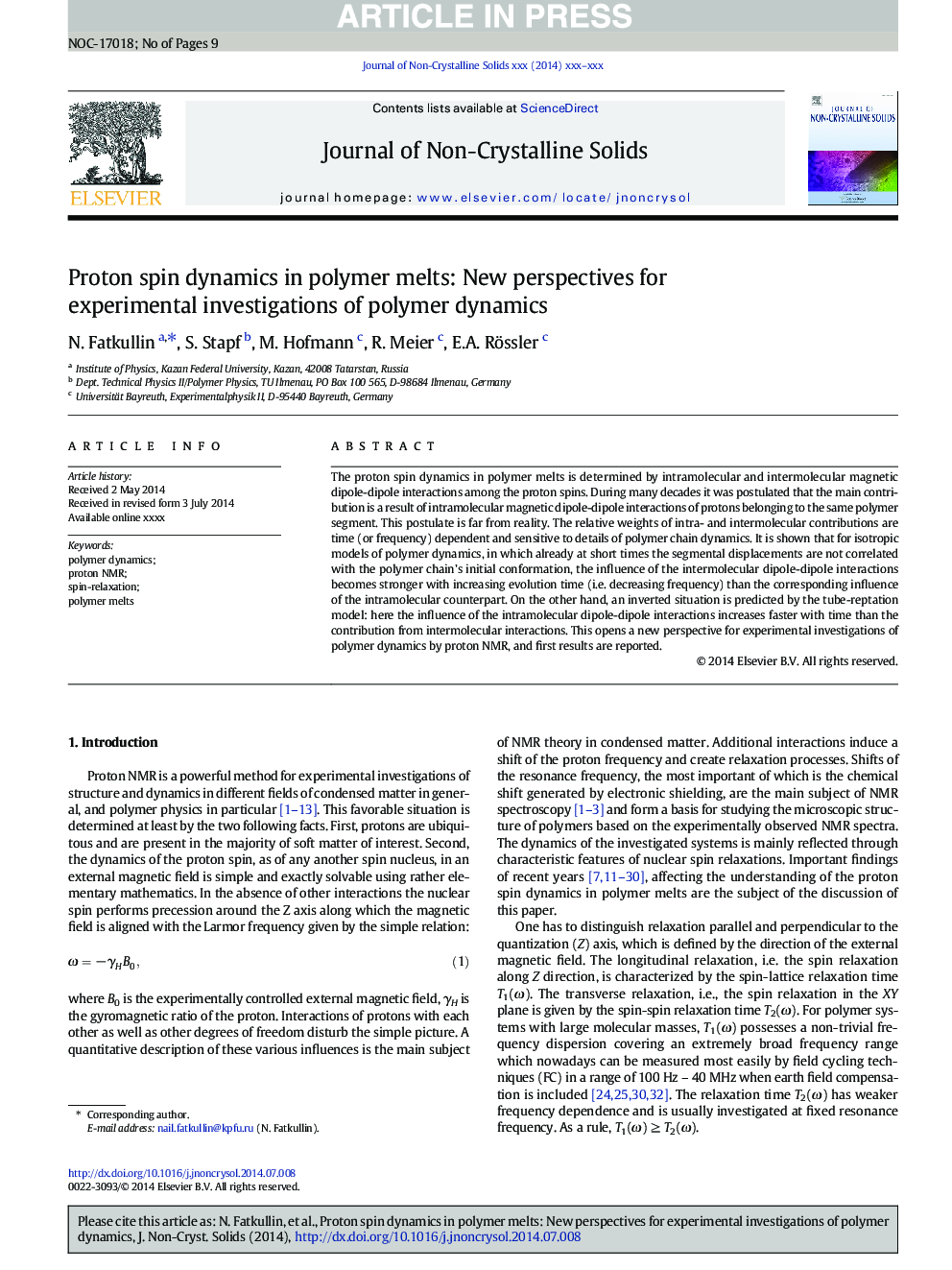| Article ID | Journal | Published Year | Pages | File Type |
|---|---|---|---|---|
| 7901609 | Journal of Non-Crystalline Solids | 2015 | 9 Pages |
Abstract
The proton spin dynamics in polymer melts is determined by intramolecular and intermolecular magnetic dipole-dipole interactions among the proton spins. During many decades it was postulated that the main contribution is a result of intramolecular magnetic dipole-dipole interactions of protons belonging to the same polymer segment. This postulate is far from reality. The relative weights of intra- and intermolecular contributions are time (or frequency) dependent and sensitive to details of polymer chain dynamics. It is shown that for isotropic models of polymer dynamics, in which already at short times the segmental displacements are not correlated with the polymer chain's initial conformation, the influence of the intermolecular dipole-dipole interactions becomes stronger with increasing evolution time (i.e. decreasing frequency) than the corresponding influence of the intramolecular counterpart. On the other hand, an inverted situation is predicted by the tube-reptation model: here the influence of the intramolecular dipole-dipole interactions increases faster with time than the contribution from intermolecular interactions. This opens a new perspective for experimental investigations of polymer dynamics by proton NMR, and first results are reported.
Related Topics
Physical Sciences and Engineering
Materials Science
Ceramics and Composites
Authors
N. Fatkullin, S. Stapf, M. Hofmann, R. Meier, E.A. Rössler,
